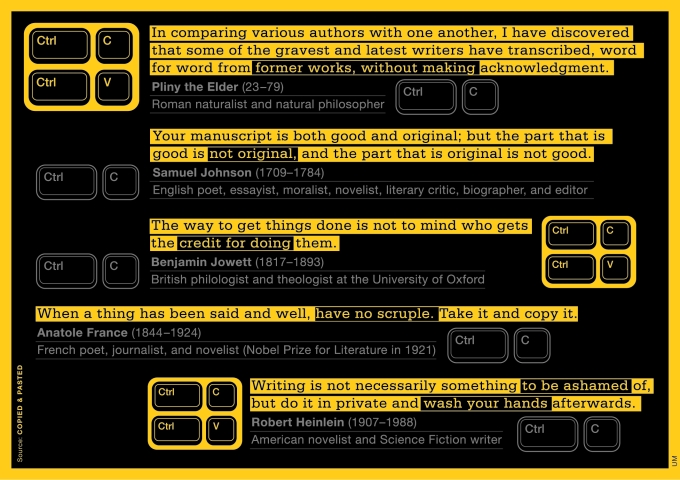Most developed countries have extensive guidelines about research integrity, which reflects a global attempt to harmonize policies for handling research misconduct. For the editors and readers of English-language international journals, the question of plagiarism is of particular concern. Here, we look at the perception of plagiarism among Brazilian scientists. Our results suggest that the concept of plagiarism itself is not clear: although our participants unanimously regarded the use of the ideas and data of other researchers as wrong, they had mixed opinions about using passages of text. We also found that plagiarism is a sensitive issue, which is not yet appropriately addressed by formal institutional guidelines in all Latin American countries.
…although our participants unanimously regarded the use of the ideas and data of other researchers as wrong, they had mixed opinions about using passages of text
Several countries, especially in Western Europe and the USA, have been paying increasing attention to research misconduct. The US Office of Research Integrity (ORI; Rockville, MD, USA), created in 1992, and the UK Research Integrity Office, created in 2006, are just two of several initiatives addressing this problem. In the USA, increased governmental scrutiny during the 1980s and 1990s led to congressional hearings and federal policies to foster research integrity (Dingell, 1993). In 1999, the US Office of Science and Technology Policy (OSTP; Washington, DC, USA) determined that fabrication, falsification and plagiarism (FFP) should be the main focus of investigations into allegations of research misconduct (OSTP, 1999).
According to the OSTP definition, fabrication is “making up data or results and recording or reporting them”; falsification is “manipulating research materials, equipment, or processes, or changing or omitting data or results such that the research is not accurately represented in the research record”; and plagiarism is “the appropriation of another person's ideas, processes, results, or words without giving appropriate credit” (OSTP, 2000). Although other questionable research practices are also considered to be a cause for concern (Swazey et al, 1993; De Vries et al, 2006), FFP represent practices that researchers worldwide find unacceptable. In addition to the USA and several European countries—including the UK, Germany, Denmark and France—some Asian countries, such as Japan and China, have also developed initiatives to tackle FFP (Xin, 2006).
So far, Latin American countries have not participated actively in this debate. In 2006, the European Science Foundation (ESF; Strasbourg, France) and the ORI held the first World Conference on Research Integrity in Lisbon, Portugal. Latin American professional societies, research administrators and policymakers did not take part in the forum, which the organizers considered disappointing (Steneck & Myer, 2007). Indeed, the lack of involvement of Latin American countries is reflected in the paucity of discussions on research integrity in Latin American science (Doxsey, 2002).
Our own focus is on Brazil, which has “the most sophisticated and diversified science, technology and innovation system” of all the Latin American countries (Foreign Affairs and International Trade Canada, 2008). Compared with its neighbours, Brazil invests the highest proportion of its gross domestic product in research and development (World Bank, 2007), and the Brazilian government recently announced a “US$28 billion package for science and technology over the next 3 years” (Medeiros, 2007). Brazilian research accounts for a considerable fraction of publications in major scientific databases. In 2005, Brazilian authors produced almost 45% of the articles from Latin America that were published in journals indexed in the Thomson Reuters database (Brazilian Ministry of Science and Technology, 2006). Moreover, Brazil has more journals indexed in Medline than any other country in the region (Piccoli & Procianoy, 2007).
…“[in Brazil] plagiarism is an under-discussed problem, which has less to do with the lack of a problem than with the lack of initiatives to broaden the discussion on this issue”…
Nevertheless, in terms of engagement with international debates and policies addressing research misconduct, Brazil, as with the other Latin American countries, is lagging behind. Carlos Coimbra, Editor of the health-science journal Cadernos de Saúde Pública, commented that “[in Brazil] plagiarism is an under-discussed problem, which has less to do with the lack of a problem than with the lack of initiatives to broaden the discussion on this issue” (Coimbra, 1996). All of the main scientific journals published in Brazil and in several other Latin American countries are listed in the Scientific Electronic Library Online (SciELO; www.scielo.org), and their contribution amounts to more than 190,700 articles from 594 journals. A search of SciELO using the term ‘plagiarism' in July 2008 yielded only 10 documents that addressed FFP-related issues, three of which were from Brazil.
As mentioned earlier, plagiarism is defined as “the appropriation of another person's ideas, processes, results, or words without giving appropriate credit”. In practice, however, the concept is not so clear. Some consider the copying of as few as eight words to be unacceptable, whereas others allow the copying of up to 48 words (Skandalakis & Mirilas, 2004). The most recent ORI interpretation of the OSTP definition is that it should “apply to the theft or misappropriation of intellectual property and/or the substantial unattributed textual copying of another's work”, meaning “the unattributed verbatim or nearly verbatim copying of sentences and paragraphs which materially mislead the ordinary reader regarding the contributions of the author” (ORI, 2007). In 2005, the ORI annual report stated that “[i]nstitutions received 71 allegations of falsification, 34 of plagiarism, 31 of fabrications, and 1 other” (ORI, 2006).
…“we're overwhelmed by the mechanics of being productive; it's something mechanical, and we end up […] accepting things that used to be unethical…
In fact, plagiarism “occurs in research in all academic disciplines: the natural sciences, applied sciences, social sciences, humanities, fine arts, and professions” (Price, 1994). It is not a recent phenomenon: one of the first documented cases of ‘intellectual theft' in the academic community was a thesis submitted to the University of Paris in 1804 (Triggle & Triggle, 2007). Today, plagiarism is a growing concern, especially among educators, as the Internet makes copying much easier than it used to be (Park, 2003; Carroll, 2004; Breen & Maassen, 2005).
Funding agencies from developed countries and English-language international journals have therefore become more alert to the problem. During the past three years, many English-language international journals have implemented new policies about publication ethics (Anon, 2008). Some publishers, including Elsevier, Taylor & Francis, Wiley-Blackwell, the British Medical Journal (BMJ) Group and Nature Publishing Group, have implemented a process of checking the originality of submitted work using Crosscheck, a service that can be used to detect plagiarism. At present, however, its high cost and limited access prevent its widespread use by individuals.
As most international high-profile journals are published in English, they tend to set the ethical standards in that language. Consequently, many non-native English-speaking (NNES) scientists feel that there is a demand for ‘textual originality' from an anglophone perspective. To provide some insight into the perception of NNES scientists from Brazil, we conducted focus-group interviews (Kitzinger, 1995) that addressed plagiarism in scientific publications and theses.
To our knowledge, this is the first time that a Brazilian research team has looked at plagiarism in academia from the point of view of scientists. Our results, which are qualitative in nature, cannot provide a comprehensive picture of the perceptions of plagiarism among Brazilian researchers and do not necessarily represent the views of other Latin American researchers. However, the comments made by our respondents represent an opportunity for NNES scientists, especially those from developing countries, to reflect on a sensitive issue that has a direct influence on the process of communicating science in an anglophone setting.
We conducted two focus groups, each lasting approximately two hours, with active researchers and/or professors and thesis advisors, who were also preferably reviewers for international journals. A total of 16 scientists participated from the fields of biomedical science, engineering, chemistry, physics, computer science and medicine: ten in March 2008 and six in April 2008.
The focus groups addressed issues related to competence at writing in English, the concept of plagiarism in academia—including among graduate students—and redundancy in science. Participants were also asked about research-integrity policies at their own institutes. The excerpts presented here were translated from Portuguese into English by one of the moderators, who is a native Portuguese speaker and has a formal background in the English language.
As mentioned earlier, the OSTP guidelines include clear definitions of what constitutes plagiarism in research. In practice, however, the definition of plagiarism is not clear. In a 2005 forum of the World Association of Medical Writers (WAME; Shiraz, Iran), editors commented that “for authors who are not native speakers of English, defining plagiarism can be extremely difficult” (WAME, 2005). Accordingly, the concept of plagiarism seemed to be relatively ill-defined among our respondents. Only two gave the full definition of plagiarism, which includes not only the use of the ideas and results of someone else without attribution, but also inappropriate textual borrowing.
In fact, most respondents considered textual plagiarism in science to be a less serious offence than copying data. The same view was expressed by a few Brazilian physicists who were accused of inappropriate textual borrowing in papers published in Physical Review C, some of whom considered this to be just an editorial problem and not plagiarism (Garcia, 2007). Our respondents expressed a similar attitude. One said: “Some words are instrumental sometimes […] if an author is borrowing from another to say the same thing […] this work lacks originality, but it is not plagiarism.” He added that “[w]e have to master a language that is not ours and there are several historical reasons why we may not like it […] but that's the way it is: we have to. On the other hand, excluding authors who have a contribution to make [because of their poor language skills] […] that's another story.”
In fact, precluding authors from contributing original data to science based on textual plagiarism, which in many cases is associated with linguistic shortcomings, is a complex issue, not least because scientists from different cultures might have different perceptions of plagiarism. In a 2004 meeting, Martin Blume, Editor-in-Chief of the Journal of the American Physical Society, expressed reservations about how to handle this issue: “non-native-English-speaking authors writing in English might lift passages wholesale from previously published work; the authors may view their action as a way of learning the language, or it may be in part attributable to cultural differences […] APS [the American Physical Society] tries to refer cases to the offenders' institutions, but standards may be different in different countries” (Ancker, 2003).
Source: COPIED & PASTED
UM
One respondent commented that textual plagiarism is a problem prevalent among students but not among faculty: “we should discuss [textual plagiarism] at the educational level because it has become a serious problem among students […] ‘googling' […] copying and pasting, yes, that's a serious problem […] Plagiarism in science? Sure: results that were already published should be appropriately cited […] but concerning the text […] I think it is not the issue, as it is secondary to other aspects we find more relevant.” This comment echoes the beliefs of many of our respondents that, when it comes to research, ideas, data and results are more relevant than words.
Although plagiarism seems to be on the increase among graduate students (Rimer, 2003; Tongyan, 2004; Derby, 2008), the participants of the focus groups reported relatively relaxed attitudes to this problem at their institutions. “A student asked me to review her thesis”, one commented. “It came to a point where I thought ‘I know this style' […] and I went on reading […] five or six pages from my own thesis! […] I've never encountered a situation like that; the really strange thing is that I talked to her thesis advisor, who considered the whole issue trivial.” Another one said “[if a student copies] not the whole thesis […] but some paragraphs, I don't care […] Materials and methods? [Students] always copy and paste from other students.”
The participants felt that plagiarism among graduate students might be associated with poor communication skills, which reflects the observations made by others (Shaw et al, 2007; Bretag, 2007; Diezmann, 2005). In addition, most of the participants expressed concerns that this might underlie plagiarism practices in higher education.
Interestingly, most of the scientists in the focus groups reported that they were not aware of any formal guidance or policies on research integrity, including textual borrowing, for graduate students and researchers at the institutional level in Brazil. We find that this corresponds with the lack of concern about putting limits on borrowing words from another writer. One scientist, however, mentioned that their institution had just formalized a declaration of originality of data and text to be signed by graduate students as a requirement for their thesis. According to this professor, the policy was triggered by previous cases of plagiarism among graduate students.
Some respondents were doubtful about whether policies against plagiarism in research would be taken seriously in Brazil, stating that, “[o]ur culture is extremely permissive, in several aspects […] it will be the same for plagiarism” or “[w]e [Brazilians] tend to be rather tolerant […] [of] any infringement […] it takes time for us to take action.”
One of the factors behind research misconduct, including plagiarism, is the pressure to publish in a competitive environment. Skandalakis & Mirilas (2004) attribute “dishonest attitudes such as plagiarism” to the “publish-or-perish hysteria”. In a letter published in the Bulletin of the Brazilian Physics Society, a Brazilian scientist expressed his concern about the effects of the mechanics of ‘counting papers' on the Brazilian research environment (Oliveira, 2006). In his view, the current assessment of research on a purely numerical basis might have detrimental effects for the Brazilian scientific community and could encourage unethical behaviour. We noted the same feeling in our focus groups: “we're overwhelmed by the mechanics of being productive; it's something mechanical, and we end up […] accepting things that used to be unethical.”
Although publication has always been an integral part of the culture of science (Meadows, 1977; Day, 1995), “the intense competition among scientists over ever-shrinking research funds, on one hand, and the great rewards that the successful few are reaping, on the other” (Roig et al, 2004) are relevant constraints in the present research environment. In addition, the monolingualism of most scientific publications changed “publish or perish” into “publish in English-language international journals or perish”. Cargill & O'Connor (2006) report that this “pressure is being felt increasingly in China as a result of top-down policy initiatives […] inducements have been put in place to encourage scientists to pursue publication of their results in English.” As a result of this additional requirement, researchers from any cultural or linguistic background might be prone to unethical practices, particularly if originality of the publication is not only about the results, but also about the written research record.
Our respondents noted—as have many other reports—that a lack of writing skills is identified as one of the reasons for plagiarism by NNES authors (Xiguang & Lei, 1996; Garbisu & Alcorta, 2003; Yilmaz, 2007; Williams 2007). We therefore asked participants to assess their English proficiency. Among the 16 researchers, only four did not express a positive opinion about their writing competence in English. One participant stated: “My linguistic competence is horrible; I've never studied English. I started to study English when I was at university […] I would use a dictionary to check everything and wasted a lot of time […] [When writing manuscripts] I transfer the job to my collaborators. I give them an outline of the main points and they give me some feedback […] I'm an experimentalist, my time is in the lab and I don't like wasting time writing.”
…there appears to be not only a lack of awareness, but also a lack of consensus about the appropriate limits of borrowing from the literature
Overall, however, the participants responded that command of the English language was not an issue. This is an expected outcome, given that most of these scientists are experienced authors and act as reviewers for English-language international journals. When asked about the quality of their manuscripts in terms of writing, the respondents asserted that they usually do not have problems with reviewers.
By contrast, many respondents mentioned that they felt a type of ‘address bias' (Gannon, 2007). As one participant said: “I don't see prejudice on the part of reviewers in relation to [our] writing […] [I see] signs of bias because we're from a developing country […] a paper from Brazil submitted with international collaboration is clearly read in a different way compared to one submitted only by Brazilian authors.”
Two other respondents also reported similar experiences: “We had been trying to publish a paper with a novel idea for a long time […] [but it was only after US researchers] improved the discussion […] and we included their names […] [that] the work was accepted, with compliments”. Another respondent said that after he submitted groundbreaking research on protein sequencing to a high-profile journal, the editor asked him to send the journal further details together with copies of 45 chromatograms. This respondent argued that “if this work were from Harvard, [the editor] wouldn't have asked for this material.”
However, some reports suggest that the language itself might also send a positive or negative message to reviewers (Curry & Lillis, 2004; Flowerdew, 2008): “articles that are poorly prepared, with misspellings and unacceptable grammar, but with apparently excellent data sets and conclusions, may trigger an alert as to the origin of the data” (Trevors & Saier, 2006).
For developed countries, the estimated number of cases of FFP is usually less than 1% (Steneck, 2000). In a 2005 survey of 3,247 researchers in the USA, Martinson et al (2005) found that the estimates for reported cases of “using another's ideas without obtaining permission or giving due credit” were less than 2%. Nevertheless, some researchers remain sceptical and argue that many cases go unreported (St James-Roberts, 1976; Smith, 2008; Titus et al, 2008). Yet, the number of alleged instances of plagiarism in English-language journals is found to be increasing, especially, it seems, among authors from NNES countries (Roig, 2006).
The analysis of our focus-group discussions, together with the literature, point to at least two reasons for the increasing rates of alleged cases of plagiarism by authors from NNES developing countries: a lack of formal guidance on research integrity, which includes publication ethics, and a lack of training in English writing skills, by which we do not mean linguistic competence based on grammar and syntax, but rather the ability to communicate science and ideas effectively in that language. As some authors have pointed out, although a grammatical knowledge of English is essential, it is not sufficient to enable researchers to write abstracts, research papers or even cover letters effectively (Jordan, 1977; Swales, 1990; Swales & Feak, 1994); rather, this is linked to knowing “the unwritten rules of the game” (Aluisio et al, 2001) of writing science in English. These rules define what makes a piece of writing coherent and what makes a text sound stylistically from an anglophone perspective (Ammon, 2001; Flowerdew, 2008).
According to a document that Elsevier produced for its editors, “the scientific convention is that you should identify and credit your sources but, while it's inappropriate to pass off someone else's ideas as your own, that shouldn't preclude discussion of those ideas” (Anon, 2005). In scientific writing, authors should build their ideas upon those of others by proper attribution. Discussing the ideas of others requires that authors be able to summarize and paraphrase them in their own words—or quote them, which is not common in scientific papers. However, as Myers (1998) has pointed out, “paraphrasing is arguably the highest and most synthetic language skill of all.”
Complying with ethical publication guidelines, including writing manuscripts without inappropriate textual borrowing, requires more than a keen sense of ethics. For NNES authors in particular, it requires demonstrating a level of competence in writing that only a few achieve. Of the 52,223 Brazilian researchers who have inserted their curriculum vitae into the Lattes national online database (the Lattes Platform; http://lattes.cnpq.br), only 34.8% have evaluated their English skills in reading, listening, speaking and writing as ‘good' (Vasconcelos et al, 2008). On the basis of the feedback from the focus groups, those 34.8% might not necessarily share the anglophone perception of what constitutes textual plagiarism, for example. Although plagiarism is a problem not just in NNES countries, linguistic competence to write in English in these countries is a crucial factor and deserves close attention if we want to address the problem effectively.
We therefore doubt that the increasing number of retraction letters, owing to plagiarized texts, reveals generally unethical behaviour by scientists. Rather, many of these letters reveal the extent to which the demands of producing science in an international language affect the writing productivity of scientists. This is a delicate issue, particularly because writing research in English is, per se, a hurdle for many NNES authors, especially those from developing countries (Freeman & Robbins, 2006; Victora & Moreira, 2006; Vasconcelos et al, 2007; Meneghini & Packer, 2007). These authors have already had to face biases to get published. Floyd E. Bloom, former Editor-in-Chief of Science, has written: “If you see people making multiple mistakes in spelling, syntax and semantics, you have to wonder whether when they did their science they weren't also making similar errors of inattention” (Gibbs, 1995; Myers, 1998). We wonder what editors might think when they see multiple mistakes in spelling, syntax and semantics—and, in addition, inappropriate borrowing.
The outcome of our focus-group discussions shows a need for the wider dissemination of publication ethics among scientists in NNES developing countries. As we have pointed out, however, this alone is not enough. Latin American countries, even with an understanding of internationally agreed ethics, would still lag behind in addressing the problem of plagiarism, especially textual plagiarism, in academia. It is therefore of crucial importance to invest in the competence of these NNES scientists at writing in scientific English. For Brazil, we suggest that workshops and debates on publication ethics be included in national conferences and that special attention should be given to plagiarism. In addition, graduate programmes in the sciences should raise student awareness not only of what constitutes plagiarism in science, but also of the constraints imposed by writing science in an anglophone setting. This initiative could then be combined with policies for formal training in writing scientific English. It will take time for these initiatives to have an effect; however, a concerted proactive approach would benefit the whole scientific community.
Finally, we argue that the international scientific community, as clearly noted in our focus-group discussions, universally disapproves of the plagiarism of ideas and data. However, when it comes to plagiarism of words—that is, textual plagiarism in science—there seems to be not only a lack of awareness, but also a lack of consensus about the appropriate limits of borrowing from the literature. Defining these limits, however, should not be the task of only anglophone scientists; NNES scientists also need to participate in the international debate on this topic.
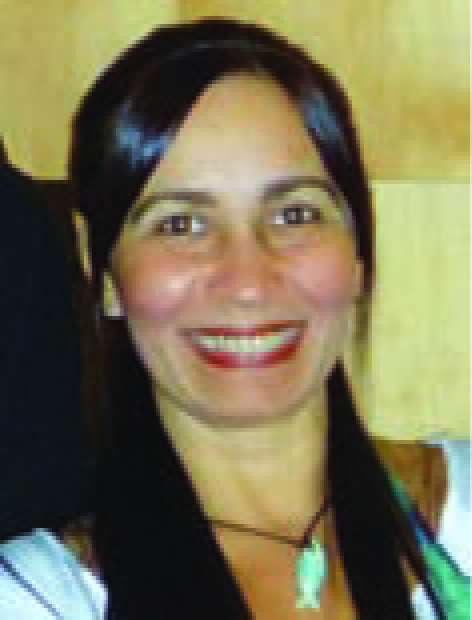
Sonia Vasconcelos
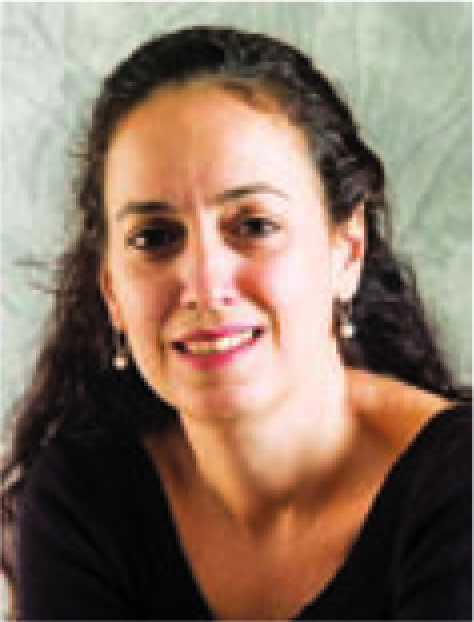
Jacqueline Leta
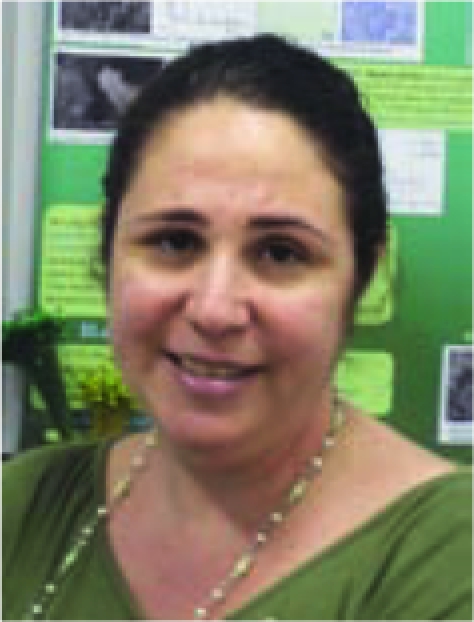
Lídia Costa
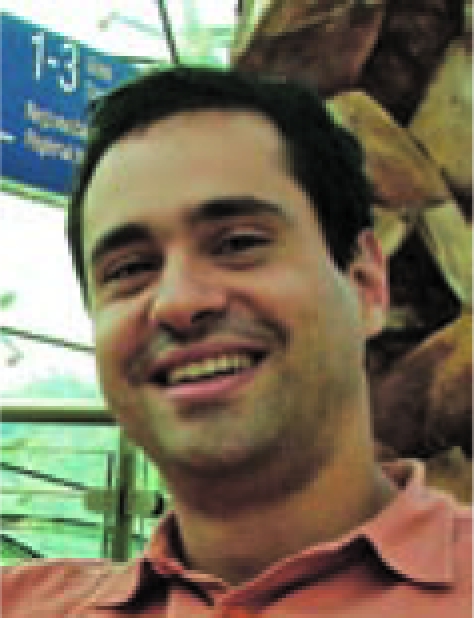
André Pinto
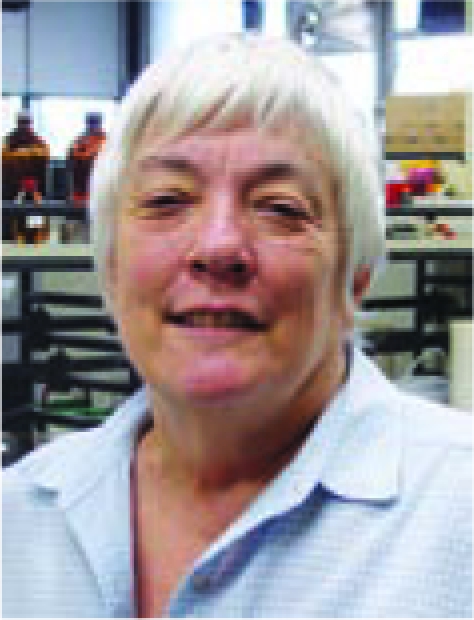
Martha M. Sorenson
References
- Aluisio SM, Barcelos I, Sampaio J, Oliveira ON (2001) How to learn the many unwritten “rules of the game” of the academic discourse: a hybrid approach based on critiques and cases to support scientific writing. In Proceedings of the IEEE International Conference on Advanced Learning Technologies, pp 257–260. Madison, WI, USA: IEEE [Google Scholar]
- Ammon U (Ed) (2001) The Dominance of English as a Language of Science. Effects on Other Languages and Language Communities. New York, NY, USA: de Gruyter [Google Scholar]
- Ancker J (2003) Proceedings of the Retreat on the Journal's Role in Scientific Misconduct. A Council of Science Editors Retreat, Virginia. www.councilscienceeditors.org/events/ori_retreat.pdf [Google Scholar]
- Anon (2005) Editor's Update. Amsterdam, the Netherlands: Elsevier. www.elsevier.com/wps/find/editors.editors/editors_update/issue11a [Google Scholar]
- Anon (2008) Plagiarism and Fabrication [Guidelines for Authors]. London, UK: Nature Publishing Group. http://www.nature.com/authors/editorial_policies/plagiarism.html [Google Scholar]
- Brazilian Ministry of Science and Technology (2006) Indicators of Coordination. www.mct.gov.br/index.php/content/view/8499.html [Google Scholar]
- Breen L, Maassen M (2005) Reducing the incidence of plagiarism in an undergraduate course: the role of education. IIER 15: 1–16 [Google Scholar]
- Bretag T (2007) The emperor's new clothes: Yes, there is a link between English language competence and academic standards. People Place 15: 13–21 [Google Scholar]
- Cargill M, O'Connor P (2006) Developing Chinese scientists' skills for publishing in English: evaluating collaborating-colleague workshops based on genre analysis. JEAP 5: 207–221 [Google Scholar]
- Carroll J (2004) Institutional Issues in Deterring, Detecting and Dealing with Student Plagiarism. www.jisc.ac.uk/uploaded_documents/plagFinal.pdf [Google Scholar]
- Coimbra CEA (1996) Plágio em ciência [Plagiarism in science]. Cad Saúde Pública 12: 440–441 [DOI] [PubMed] [Google Scholar]
- Curry MJ, Lillis T (2004) Multilingual scholars and the imperative to publish in English: negotiating interests, demands, and rewards. TESOL Quart 38: 663–688 [Google Scholar]
- Day RA (1995) How to Write and Publish a Scientific Paper, 5th Edn. Phoenix, AZ, USA: Oryx [Google Scholar]
- De Vries R, Anderson MS, Martinson BC (2006) Normal misbehavior: scientists talk about the ethics of research. J Empir Res Hum Res Ethics 1: 43–50 [DOI] [PMC free article] [PubMed] [Google Scholar]
- Derby B (2008) Duplication and plagiarism increasing among students. Nature 452: 29. [DOI] [PubMed] [Google Scholar]
- Diezmann CM (2005) Supervision and scholarly writing: writing to learn: learning to write. Reflective Practice 6: 443–457 [Google Scholar]
- Dingell JD (1993) Misconduct in medical research. NEJM 328: 1610–1615 [DOI] [PubMed] [Google Scholar]
- Doxsey JR (2002) Promoting scientific integrity: the long road ahead—some considerations from Espírito Santo, Brazil. In Investigating Research Integrity: Proceedings of the First ORI Research Conference on Research Integrity, NH Steneck, MD Scheetz (Eds). Rockville, MD, USA: Office of Research Integrity [Google Scholar]
- Flowerdew J (2008) Scholarly writers who use English as an additional language: what can Goffman's “stigma” tell us? JEAP 7: 77–86 [Google Scholar]
- Foreign Affairs and International Trade Canada (2008) Brazil: A Global Commerce Strategy Priority Market. www.international.gc.ca/commerce/strategy-strategie/r5.aspx [Google Scholar]
- Freeman P, Robbins A (2006) The publishing gap between rich and poor: the focus of AuthorAID. J Public Health Policy 27: 196–203 [DOI] [PubMed] [Google Scholar]
- Gannon F (2007) Address bias. EMBO Rep 8: 421–421 [DOI] [PMC free article] [PubMed] [Google Scholar]
- Garbisu C, Alcorta I (2003) Plagiarism or plain survival. The Scientist 17: 10 [Google Scholar]
- Garcia R (2007) Físicos da USP acusam chefe do Instituto de Física de plágio [Director of USP's Physics Institute accused of plagiarism by faculty members]. Folha de SP. 6/29/2007. www1.folha.uol.com.br/folha/ciencia/ult306u308269.shtml [Google Scholar]
- Gibbs WW (1995) Lost science in the third world. Sci Am 273: 92–100 [Google Scholar]
- Jordan RR (1977) English for Academic Purposes: A Guide and Resource Book for Teachers. Cambridge, UK: Cambridge University Press [Google Scholar]
- Kitzinger J (1995) Qualitative research: introducing focus groups. BMJ 11: 299–302 [DOI] [PMC free article] [PubMed] [Google Scholar]
- Martinson BC, Melissa SA, de Vries R (2005) Scientists behaving badly. Nature 435: 9. [DOI] [PubMed] [Google Scholar]
- Meadows AJ (1977) Communication in Science. London, UK: Butterworths [Google Scholar]
- Medeiros J (2007) Brazil to boost science spend. Nature 450: 591. [DOI] [PubMed] [Google Scholar]
- Meneghini R, Packer AL (2007) Is there science beyond English? Initiatives to increase the quality and visibility of non-English publications might help to break down language barriers in scientific communication. EMBO Rep 8: 112–116 [DOI] [PMC free article] [PubMed] [Google Scholar]
- Myers S (1998) Questioning author(ity): ESL/ EFL, science, and teaching about plagiarism. TESL-EJ 3: 1–15 [Google Scholar]
- Oliveira PMC (2006) Medir distâncias com barômetros, massas com galvanômetros, voltagens com cronômetros [Measuring distance with barometers, mass with galvanometers and voltage with chronometers]. Brazilian Physics Society Bulletin 14. www.sbf1.sbfisica.org.br/boletim1/msg71.htm [Google Scholar]
- ORI (2006) Annual Report. Rockville, MD, USA: Office of Research Integrity [Google Scholar]
- ORI (2007) Newsletter 15: 4. Rockville, MD, USA: Office of Research Integrity [Google Scholar]
- OSTP (1999) Proposed federal policy on research misconduct to protect the integrity of the research record. Fed Regist 64: 55722–55725 [Google Scholar]
- OSTP (2000) Research misconduct: a new definition and guidelines for federal research agencies. Federal Research Misconduct Policy 65: 76260–76264 [Google Scholar]
- Park C (2003) In other (people's) words: plagiarism by university students—literature and lessons. Assess Eval High Educ 28: 5 [Google Scholar]
- Piccoli NB, Procianoy RS (2007) Brazilian scientific journals: an overview. EASE 33: 73–74 [Google Scholar]
- Price A (1994) The 1993 ORI/AAAS conference on plagiarism and theft of ideas. J Infor Ethics 3: 54–63 [Google Scholar]
- Rimer SA (2003) Campus fad that's being copied: internet plagiarism seems on the rise. The New York Times, September 3 [Google Scholar]
- Roig M (2006) Plagiarism in the sciences: conference highlights. Science Editor 29: 49 [Google Scholar]
- Roig M, Rivtin S, Kirch M (2004) Views on plagiarism. The Scientist 18: 10 [Google Scholar]
- Shaw J, Moore P, Gandhidasan S (2007) Educational acculturation and academic integrity: outcomes of an intervention subject for international post-graduate public health students. JALL 1: 55–67 [Google Scholar]
- Skandalakis JE, Mirilas P (2004) Plagiarism. Arch Surg 139: 1022–1024 [DOI] [PubMed] [Google Scholar]
- Smith R (2008) Most cases of research misconduct go undetected, conference told. BMJ 336: 913 [Google Scholar]
- St James-Roberts I (1976) Cheating in science. New Sci 72: 466–469 [Google Scholar]
- Steneck N (2000) Assessing the Integrity of Publicly Funded Research: A Background Report for the ORI Research Conference on Research Integrity. Rockville, MD, USA: Office of Research Integrity [Google Scholar]
- Steneck N, Myer T (Eds) (2007) Final Report to the ESF and ORI First World Conference on Research Integrity: Fostering Responsible Research. Lisbon, Portugal. www.icsu.org/5_abouticsu/PDF/WC_final_report.pdf [Google Scholar]
- Swales J (1990) Genre Analysis: English in Academic and Research Settings. Cambridge, UK: Cambridge University Press [Google Scholar]
- Swales J, Feak CB (1994) Academic Writing for Graduate Students: Essential Tasks and Skills: A Course for Non-native Speakers of English. Ann Arbor, MI, USA: University of Michigan Press [Google Scholar]
- Swazey JP, Anderson MS, Lewis KS (1993) Ethical problems in academic research. Am Sci 81: 542–553 [Google Scholar]
- Titus SL, Wells JA, Rhoades LJ (2008) Repairing research integrity. Nature 453: 19. [DOI] [PubMed] [Google Scholar]
- Tongyan L (2004) Plagiarism cases increase, long term stats stay flat. The Tech 124: 21 [Google Scholar]
- Trevors JT, Saier MH (2006) Corruption and fraud in science. Water Air Soil Pollut 189: 1–3 [Google Scholar]
- Triggle CR, Triggle DJ (2007) What is the future of peer review? Why is there fraud in science? Is plagiarism out of control? Why do scientists do bad things? Is it all a case of: all that is necessary for the triumph of evil is that good men do nothing? Vasc Health Risk Managt 3: 39–53 [PMC free article] [PubMed] [Google Scholar]
- Vasconcelos SMR, Sorenson MM, Leta J (2007) Scientist-friendly policies for non-native English-speaking authors: timely and welcome. Braz J Med Biol Res 40: 743–747 [DOI] [PubMed] [Google Scholar]
- Vasconcelos SMR, Sorenson MM, Leta J, Batista PD, Sant'Ana M (2008) Researchers' writing competence: a bottleneck in the publication of Latin-American science? EMBO Rep 9: 700–702 [DOI] [PMC free article] [PubMed] [Google Scholar]
- Victora CG, Moreira CB (2006) North–south relations in scientific publications: editorial racism? Cad Saúde Pública 40: 36–42 [DOI] [PubMed] [Google Scholar]
- WAME (2005) How to Handle Plagiarism without Destroying the Author. Shiraz, Iran: World Association of Medical Editors. www.wame.org [Google Scholar]
- Williams D (2007) Plagiarism and redundancy. Biomaterials 28: 2535 [Google Scholar]
- World Bank (2007) Global Forum: Building Science, Technology, and Innovation Capacity for Sustainable Growth and Poverty Reduction. Washington, DC, USA: The World Bank [Google Scholar]
- Xiguang L, Lei X (1996) Scientific misconduct: Chinese researchers debate rash of plagiarism cases. Science 274: 337–338 [DOI] [PubMed] [Google Scholar]
- Xin H (2006) Scientific misconduct: scandals shake Chinese science. Science 312: 9. [DOI] [PubMed] [Google Scholar]
- Yilmaz I (2007) Plagiarism? No, we're just borrowing better English. Nature 449: 658. [DOI] [PubMed] [Google Scholar]



